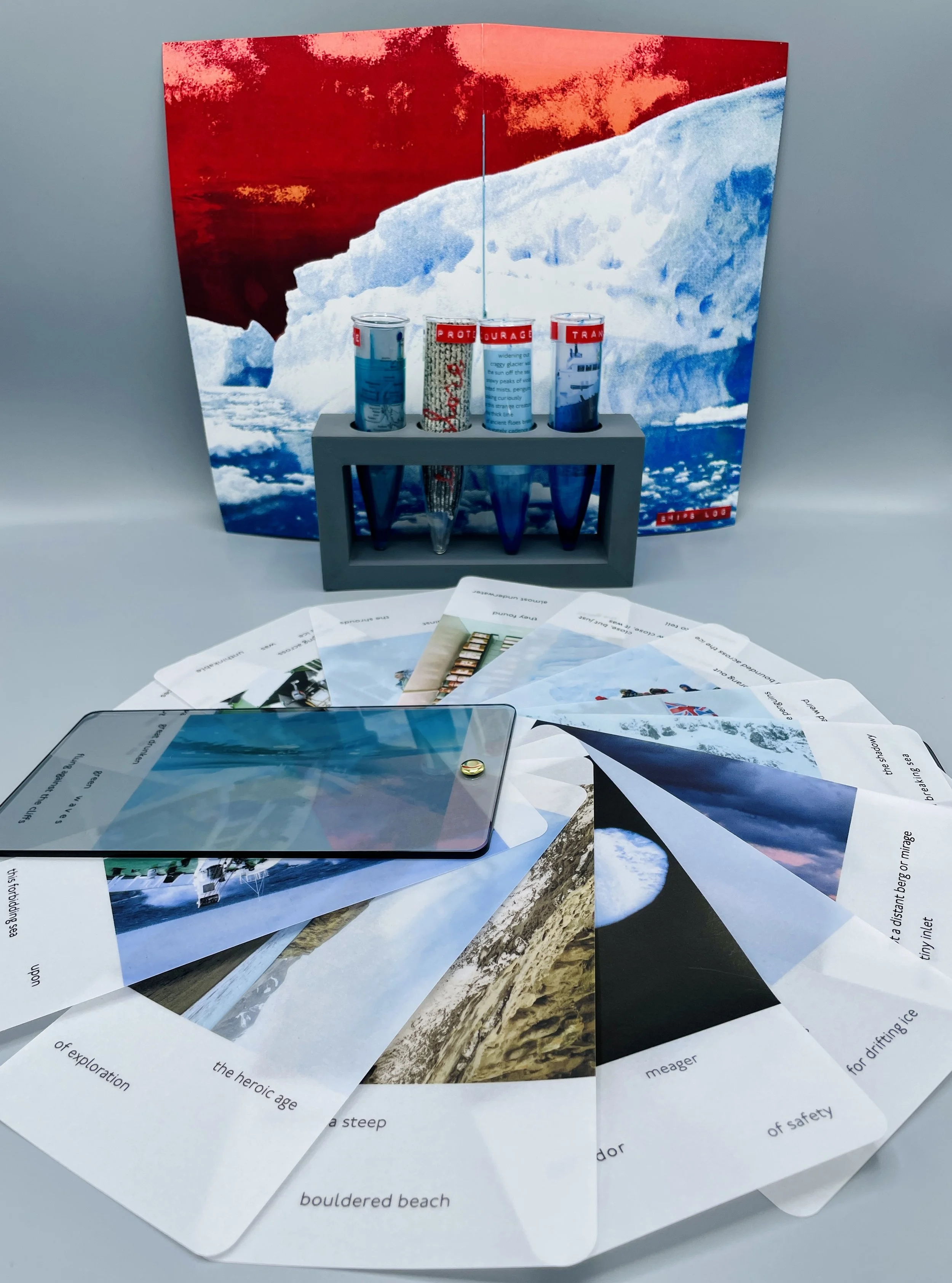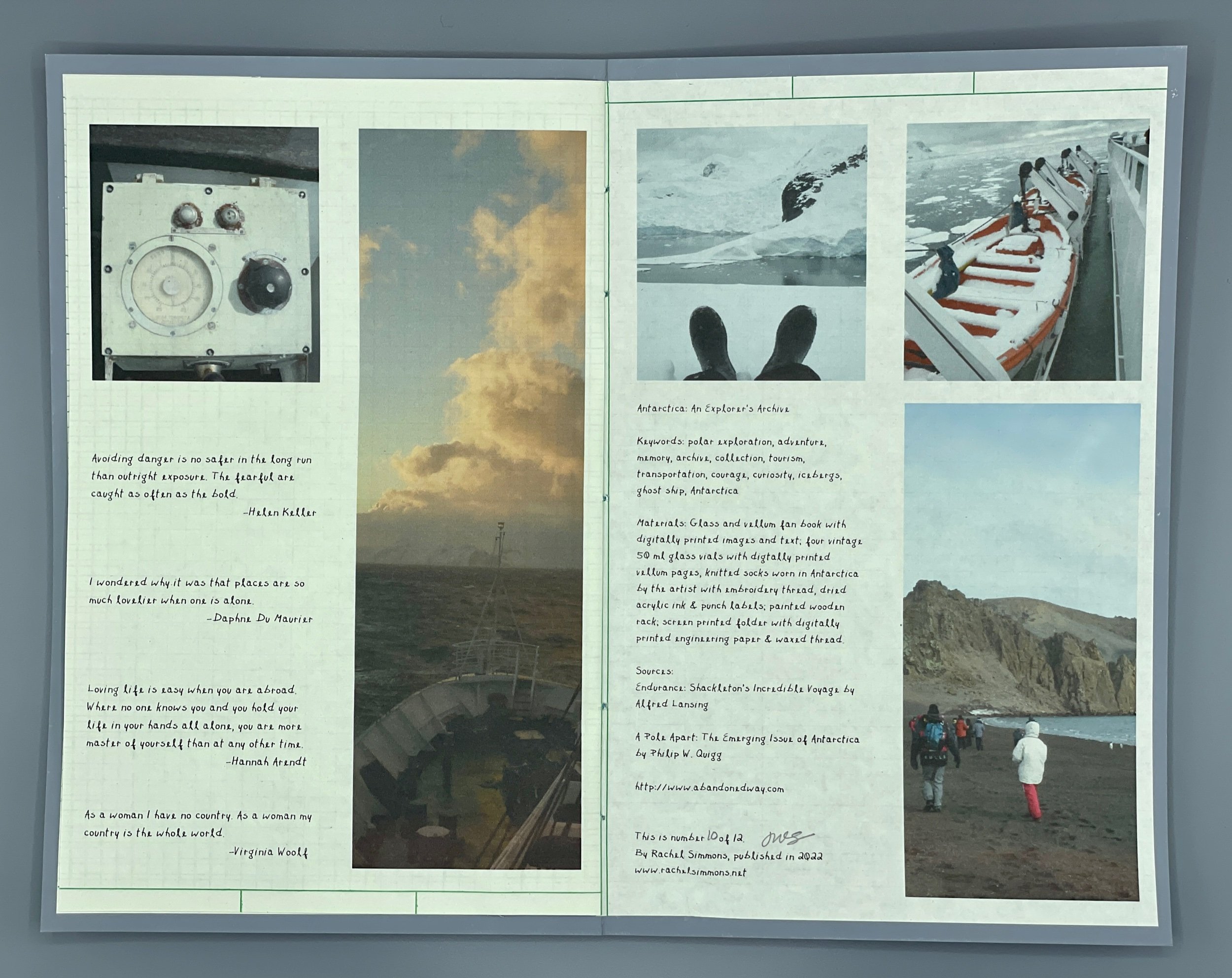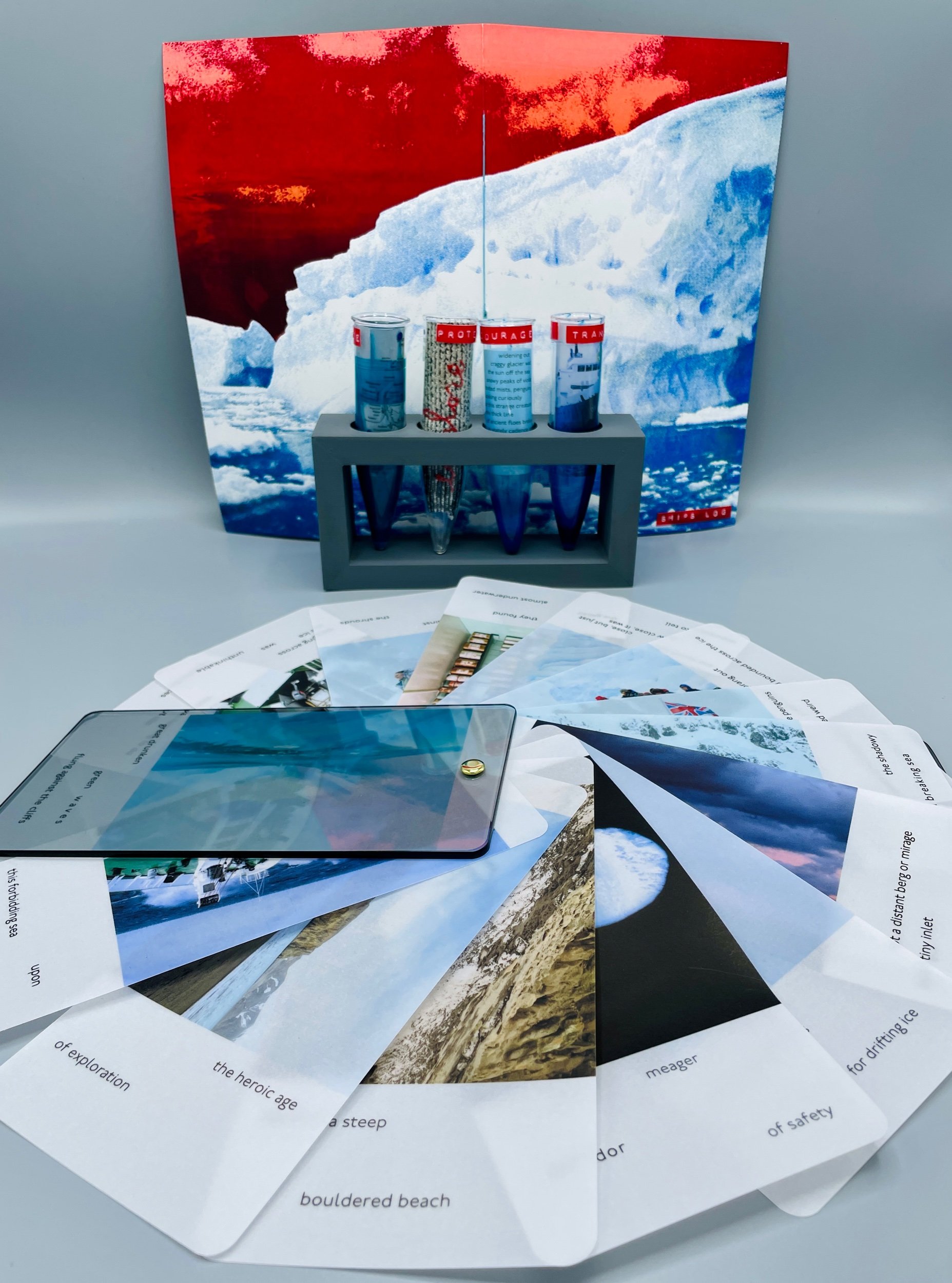Antarctica: An explorer’s Archive
Antarctica: An Explorer’s Archive, 2022. Limited edition artist’s book, edition of 12. Materials: Glass and vellum fan book with digitally printed images and text; four vintage 50 ml glass vials with digitally printed vellum pages, knitted socks worn in Antarctic by the artist with embroidery thread, dried acrylic ink & punch labels, painting wooden rack; screen-printed folder with digitally printed engineering paper & waxed thread. Custom archival box also available. Collected by The Newberry Library, Bowdoin University Library, University of Connecticut Library, Pennsylvania State University Libraries, Tufts University, University of Georgia, Athens
Through this personal archive, I engage with concepts of exploration, heroism, gender, storytelling, and memory. There are three distinct physical components in the archive, each referencing an officer’s roles on a typical polar expedition: a scientist’s lab vials, distilling the essentials of exploration; a photographer’s glass book, juxtaposing my experiences with those of early polar explorers; and the ship’s log, written by the captain or navigator, containing a photo essay about the MV Lyubov Orlova, the Soviet-era ship that brought me to the Antarctic Peninsula in 2008, only to be lost at sea a few years later.
Video showing the custom archival enclosure displaying the book’s components.
The archive’s materials reference the purpose of expeditions— the gathering of data and mapping new areas, the activity of documenting one’s travels through ship’s logs and journals, and the importance of archiving such materials for educational and historic purposes. This interactive archive encourages the reader/viewer to examine the role of the modern ecotourist— a traveler that’s neither scientist nor professional explorer— for whom surviving in the wilderness is an experience they pay to have, rather than work they are are paid to do.
Throughout the archive, I incorporate text from Alfred Lansing’s dramatic recounting of the voyage of the Endurance, Ernest Shackleton’s doomed 1914 Antarctic expedition in a wooden ship that was swallowed by ice floes. Lansing’s heroic, gritty, ultra-masculine story about how Shackleton’s crew struggled to survive is juxtaposed with my expedition photographs and stories, taken as a woman traveling alone far from home, battling anxiety, seasickness and homesickness, but within the comforts of a cruise ship. Since women were not invited to participate in early polar expeditions, they were excluded from opportunities to become heroic explorers, claim land in their name, inspire grand narratives and secure impressive public personas. As Virginia Woolf wrote, “As a woman I have no country. As a woman my country is the whole world." In part, my desire to travel to Antarctica was to prove to myself that I could do it, and later, to communicate my experiences to others.
Archives are usually repositories for primary sources and evidence-based materials; however, archives can also document the universal human experience through events in an individual’s life. In this personal archive, I sought to document, revisit and process my Antarctic travel by including pieces of clothing I wore, curating a selection of my photographs, and conducting new research into the origins and disappearance of the Orlova. As is often the case in my practice, this project was driven by a need to make meaning of events in my life, while communicating aspects of my experiences for the reader/viewer. And, as with any archive, it can be cross-referenced with other archives to provide a more wholistic picture of world events. In many ways, the Orlova was like the Endurance—a floating home that was tragically lost to the sea in service of adventure.

















